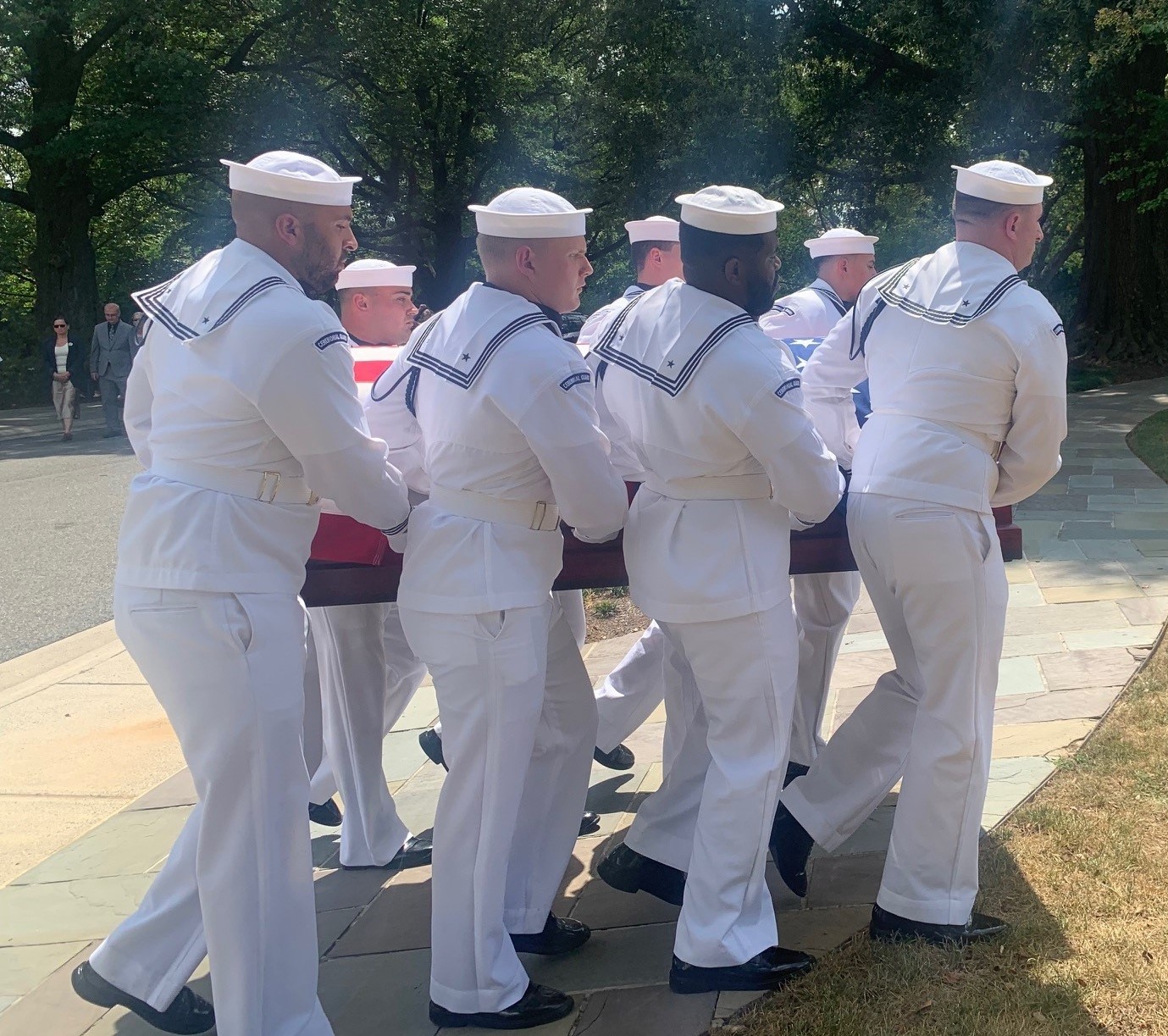
U.S. Navy Chaplain (Cmdr.) Joseph Mulqueen served his country for 22 years, including time in Vietnam and at Arlington National Cemetery. On Aug. 14, 2025, his family and friends gathered at the cemetery to say farewell to the chaplain, whom they remembered as a humble man.
Mulqueen joined the Navy chaplaincy in 1967 as a Catholic priest. The following year, he served a tour in Vietnam with the U.S. Marine Corps, which relies on the Navy for chaplain services. Jerry Mullaney, Mulqueen’s nephew, recalled that not long after his uncle arrived in Vietnam, the Viet Cong launched the Tet Offensive, a major uprising in South Vietnam, on Jan. 30, 1968. “He was in lockdown,” Mullaney explained, “and then they flew him around the country, ministering.”
Instead of writing letters home, Mulqueen sent tape recordings to his parents to play at Thanksgiving and Christmas family dinners. “We would hear the rockets going off [in the background], and sometimes they were louder,” Mulqueen’s sister, Anne Mullaney, recalled. “We’d say, ‘How come they’re louder?’ And our parents told us, ‘If they’re getting louder, they’re closer.’”
In a 2014 televised interview, Mulqueen spoke movingly about the costs of the Vietnam War. He told the story of a Marine Corps warrant officer who asked him to lead a Latin Mass prior to flying home the next day. Using a crate as an altar, the two of them celebrated the Mass. The next day, however, “his plane out of Danang got shot down,” Mulqueen recollected. “He didn’t make it.”
After Vietnam, Mulqueen continued to serve overseas aboard Navy ships. Denise Mullaney, Mulqueen’s niece, said that when he was stationed in Guam for two years, her family made tape recordings for him from their Thanksgiving table. “He was a humble man,” she said through tears. “He was always giving for the servicemen.”
Mulqueen later spent three years conducting funeral services at Arlington National Cemetery. “The two most important things to him were the funerals at Arlington and serving Mass,” said Jerry. “After he returned to civilian ministry and when he was up here in New York, he would go down to Arlington if he could fit it in his schedule,” Anne added. In his television interview, Mulqueen encouraged Americans to visit the cemetery.
Mulqueen always wanted to be laid to rest at Arlington National Cemetery. The funeral service—with a Navy band, firing party and bugler sounding Taps—proved very moving to Jerry, who concluded, “I understand now, even more, why he wanted to be buried here.”
► Related: Learn about the history of chaplaincy in the U.S. military.